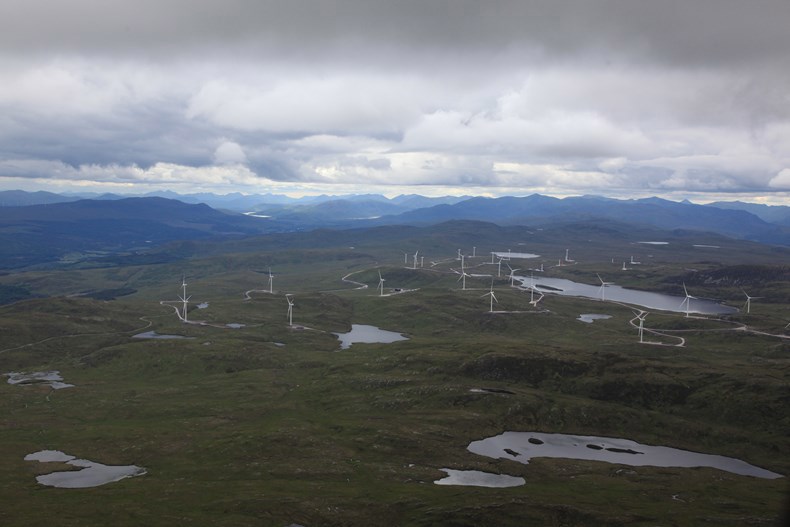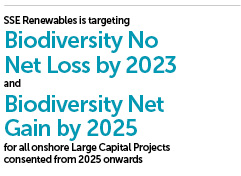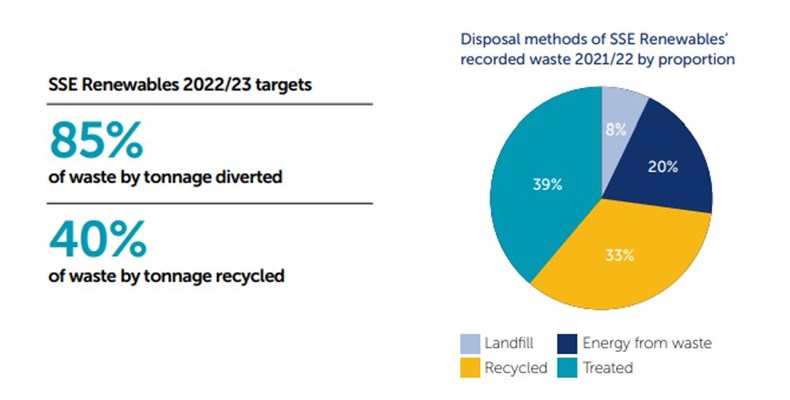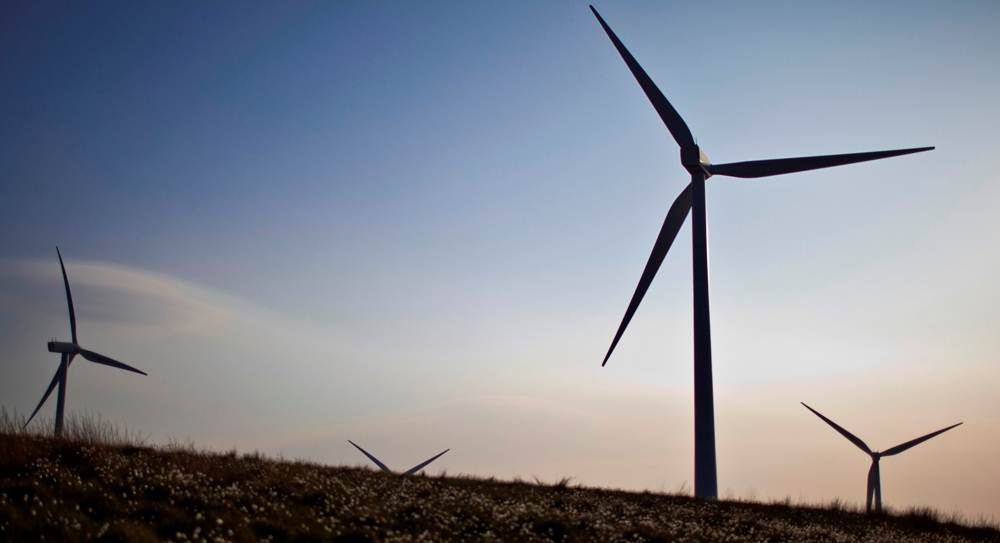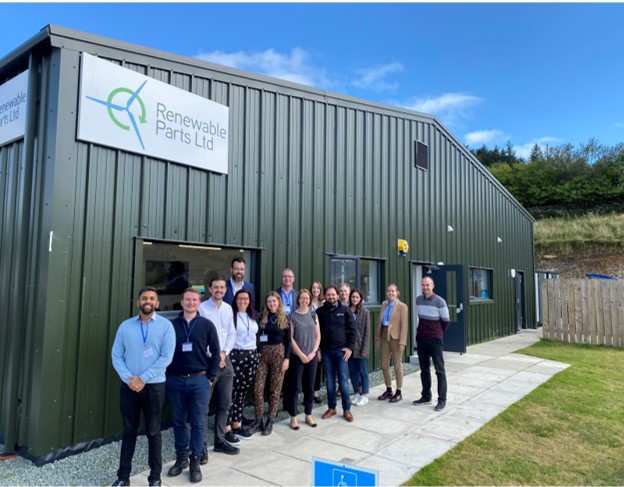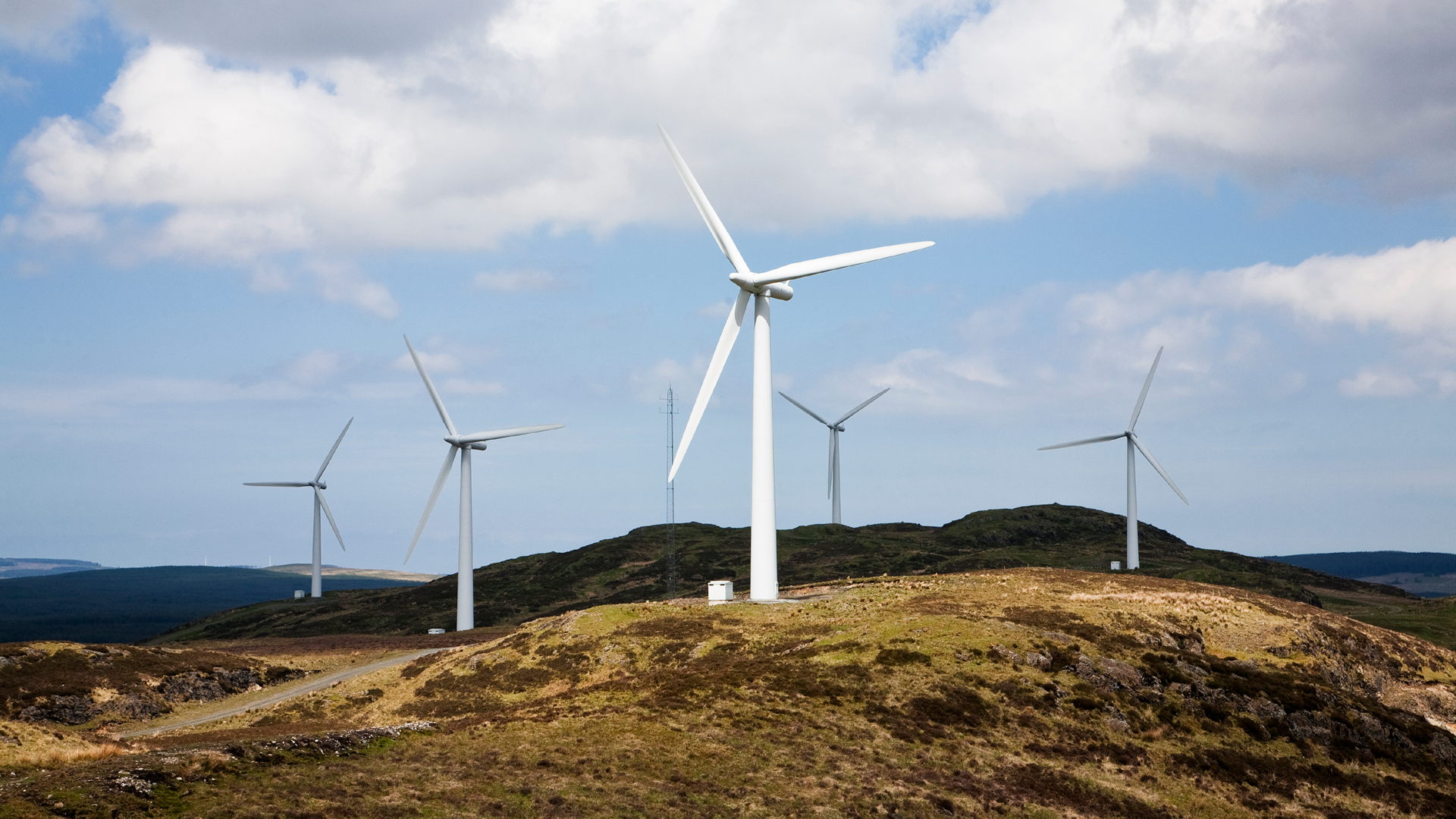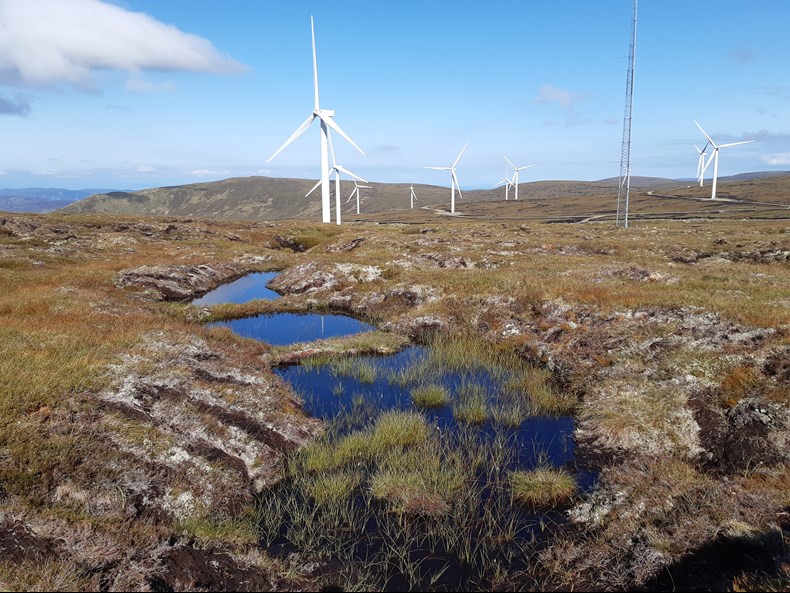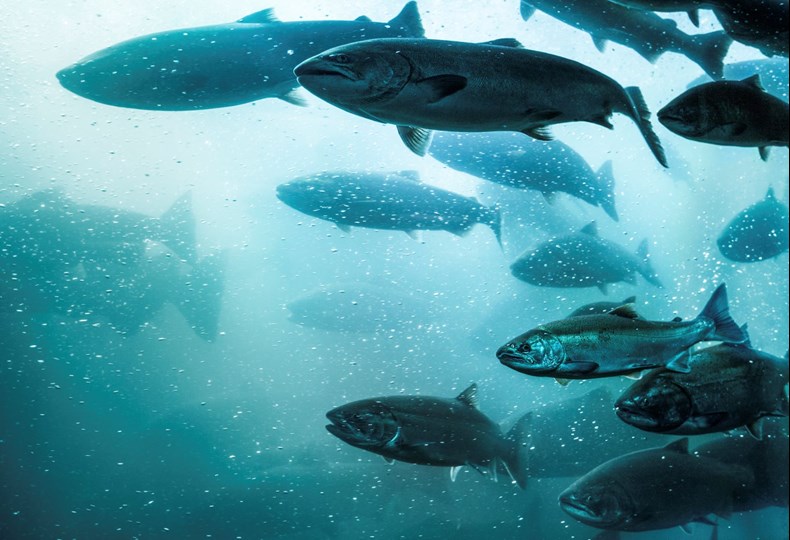The Golden Eagle
Where can I see them now and where did they once live?
The golden eagle is one of the icons of the Scottish mountains. A sighting, albeit someway distant, is usually greeted with great excitement. It has become our most impressive predator now that our large mammalian predators are extinct.
Golden eagles are wide-ranging birds, found in a surprisingly broad range of habitats. In order to be successful a pair of eagles needs access to an adequate food supply, a suitable nest site and freedom from persecution. In 1982 the first systematic national survey of golden eagle numbers found 424 home ranges occupied by pairs and a further 87 ranges being used by single birds. This was a substantial increase on previous estimates which was largely attributed to improved coverage of remote areas. A repeat national survey in 1992 found 422 ranges occupied by pairs and 69 by single birds. The most recent national survey (2015) found that the population had increased to somewhere above 500 pairs and it has probably carried on increasing. For example, in the Monadhliath, the population has increased from 13 to 26 pairs in less than 20 years.
Although the golden eagle is largely confined to the Scottish Highlands and the Hebridean islands breeding was once more extensive across Britain and Ireland. Eagles bred in North Wales and the Southern Pennines during the eighteenth century and they hung on in the Lake District until the early nineteenth century and the Southern Uplands of Scotland until the mid-nineteenth century. Although once widespread in Ireland, golden eagles were persecuted to extinction by 1913 but reintroduced into Donegal in 2001.
There is some confusion about past distribution patterns since many eagle records almost certainly refer to the white-tailed eagle. It is thought that the English Lake District eagles were white-tailed, and they are still recalled in place names such as Eagle Crag, Erne (corrupted to Iron or Heron) Crag. This distribution of names suggests a population of about 10 pairs. The white-tailed eagle was much more widespread breeding as far south as the Isle of White as late as 1780, where they were recently re-introduced. There is no doubt that the white-tailed eagle was persecuted to extinction in the UK and Ireland; the last territory holding bird was shot in Shetland in 1918 and they remained absent until a reintroduction programme began on Rhum in 1975. It seems that the golden eagle survived similar persecution because it nested in more remote areas.
What do they eat and where do they nest?
Large predatory and scavenging birds such as golden eagles probably gorge and fast to some extent, rather than take food on a daily basis. Calculations by Brown and Watson suggested a pair of golden eagles would require about 170 kg of meat annually. If various allowances are made for wastage (unconsumed parts of the prey), and the need to rear young and support non breeding eagles, the total food requirements of an eagle range in the eastern Highlands rises to over 320 kg per year. This would be predominantly live prey (>80% by weight) plus some carrion. In the West of Scotland, the carrion intake would be much greater. However, it is surprisingly difficult to determine what a particular golden eagle is eating. Techniques have included observation of food bought to nests and the identification of prey remains and items in regurgitated food pellets.
The choice of nest site (eyrie) is strongly influenced by the need to protect eggs and young from mammalian predators including man. Proximity to foraging grounds and a desire to ameliorate the effects of weather are presumably important considerations. Golden eagle home ranges often contain several eyries that may be used in different years. The stick nests are added to each year, occasionally culminating in very substantial structures up to 3m tall. However, most nests are typically 0.5-1m (high) by 1-1.5m (diameter).
The months before egg laying (November – February) have been little studied in golden eagles. Pairs of eagles are often observed engaged in high soaring and spectacular undulating flight at this time of year probably as a means of advertising their occupancy of territories. High soaring would presumably also assist in the location of carrion.
Golden eagle eggs are approximately oval (75 x 59mm) and weigh around 145g when newly laid. Eggs can be laid at any time between the beginning of March and the middle of April. Typically, two eggs are laid at intervals of between three and five days and incubation, carried out predominantly by the female, lasts about six weeks. In Scotland most clutches are laid between the middle of March and the first few days of April with no consistent regional differences in average laying date. The normal clutch size in Scotland is two eggs, although one and, more rarely, three eggs may be laid. Average clutch size in Scotland is larger in the east compared with the western Highlands and this is probably related to the more abundant live prey in the east.
Throughout Scotland there appears to have been a decline in clutch size since the mid nineteenth century and this is attributed to a reduction in preferred prey especially in western Scotland. In any one year a high proportion of pairs in western Scotland fail to lay eggs and this is probably related to an insufficient prey.
For about 10 days after hatching the young golden eagles are brooded by the adult female. In total the young spend about 10 weeks in the nest, eventually weighing 3.5kg (in males) or more than 4kg (females). The young birds have their maximum food requirements, which is thought to be about 2kg of prey per day, about seven to eight weeks after hatching. In many nests the larger chick kills the smaller sibling. Although the precise reasons for this Cainism are unclear it is generally assumed to be related the amount of food brought to the nest by the parents. Young eagles spend many weeks close to the nest learning to fly and they become independent (leave their natal range) at various dates from October to the following March. Generally, they do not enter the breeding population until they are four or five years old but satellite tracked birds have been found setting up a territory in their second year.
What are the main problems that golden eagles have faced?
Golden eagles have few natural enemies and, in the absence of direct persecution by man, adults probably live for between 20-30 years. Although threats to golden eagles have changed in time and space throughout its range, few golden eagle populations are entirely free from adverse actions and developments. During the nineteenth century persecution of birds of prey was intense. Golden eagles were poisoned, shot or trapped on most sporting estates and survived only on the most inaccessible parts of the Highlands. Two World Wars reduced the number of gamekeepers and legal protection in 1954 ensured at least the survival of the species in Scotland. However, deliberate destruction of eagles and/or their nest contents still continues today. Poisoning was the commonest method used but this has probably been replaced by shooting at night when birds are roosting.
Organochlorine pesticides are both toxic and very persistent in the environment. In the past they caused great unintended damage to raptor populations. DDT and the cyclodienes aldrin, dieldrin, endrin and heptachlor are especially harmful to birds of prey. Aldrin and dieldrin breakdown to HEOD, a highly toxic chemical. DDE, the metabolite of DDT, is associated with egg thinning in raptors, leading to breakage of eggs and breeding failure. DDT was used as an insecticide in sheep dips in Britain from 1947 to the mid-1950s being replaced by dieldrin until 1966 when concern over mutton contamination prevented further use. A 10% thinning in the thickness of golden eggs was recorded between 1951-65. In western Scotland the frequency of egg breakage in golden eagle nests also increased. Following the banning of dieldrin as a sheep dip in 1966 there was a noticeable improvement in breeding success in golden eagles in western Scotland. The source of contamination was assumed to be the sheep carrion that was widely used by eagles for food during the winter months. Subsequent analysis of golden eagle eggs revealed that eggshells were significantly thicker post 1970 than 1951-65. This coincided with reductions in both DDE and HEOD levels. Levels of other pollutants particularly PCBs and mercury can still be quite high in golden eagles inhabiting the western coast of Scotland. The source of this contamination is probably seabirds taken routinely as prey. The impact of these pollutants on coastal breeding golden eagles is unknown at present.
Since the Second World War large parts of upland Britain have been transformed by afforestation, especially the southern uplands and Southwest Highlands centred on Argyll. The removal of both sheep and deer has reduced the amount of carrion available to foraging eagles. Initially, removal of sheep and deer increased the amount of ground vegetation, which in turn increased the numbers of hares and grouse, thus providing a more plentiful supply of live prey for golden eagles. However, as the forest canopy closes this temporary food bonanza is lost. In Galloway it has been suggested that reduced breeding success in golden eagles was associated with extensive conifer afforestation.
The effective long-term conservation of golden eagles will be achieved by a combination of measures aimed mainly at the prevention of persecution and the maintenance of landscapes with adequate supplies of food. The various strategies available include statutory protection of the species and its habitat; intervention through directed management; protection through land use incentives and constraints; and conservation education.
Dealing with the impacts of contemporary land use, land management and land use change is a much more complex matter. Throughout the golden eagles' range in Scotland some form of economic or social subsidy underpins most land uses. Afforestation is dependent upon substantial government grants covering the costs of establishing new woodlands. Sheep farming in the hills is supported by government subsidies. Over the last twenty years, wind farms have become an increasing challenge for golden eagles. Initial concerns were focused on collision deaths but recent research suggests that, as with forests, habitat loss is the main threat.
